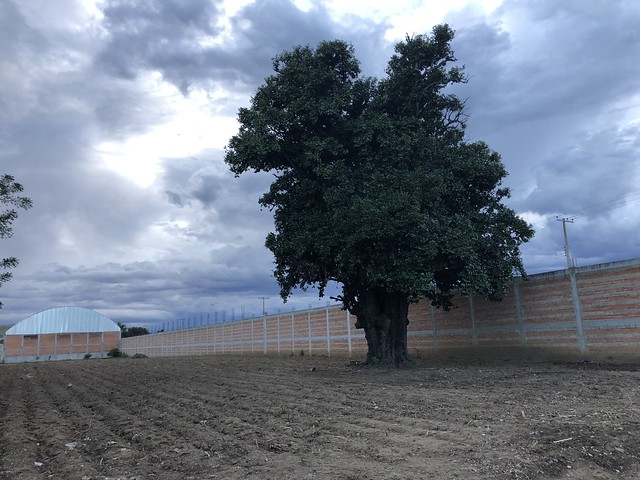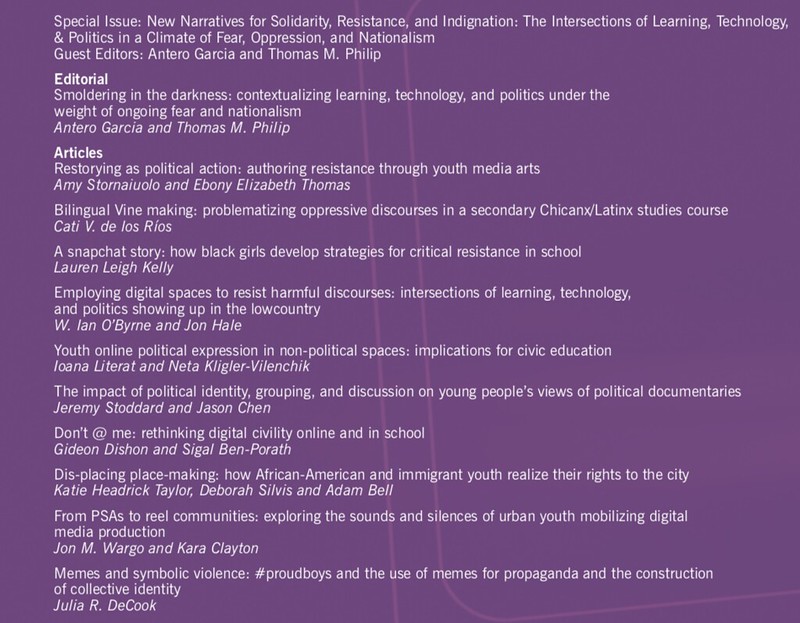I am excited to announce the publication of the latest issue of Learning, Media and Technology – New Narratives for Solidarity, Resistance, and Indignation: The Intersections of Learning, Technology, & Politics in a Climate of Fear, Oppression. Thomas Philip and I proposed this issue in the early months of 2017 expecting to highlight research of a passing moment. 20 months later, it is clear that the urgency around the themes for this issue has only increased.
The ten articles in this collection point to necessary scholarship exploring what learning and technology mean within the contexts of violence pervasive in recent years.
Our opening editorial essay for this issue, “Smoldering in the darkness: contextualizing learning, technology, and politics under the weight of ongoing fear and nationalism” attempts to situate the present moment within broader historical trends. It is freely accessible here. (And it quotes Rihanna.) Here’s a brief excerpt:
We write this acknowledging that the vast majority of educational—particularly classroom-specific—research is conducted now without acknowledging the sociopolitical contexts that press on the lives of youth today. As students sit in schools within the U.S., they are presented with reminders that youth are presently in cages, are victims of violence and unarmed deaths, and are foisted into debates of the morality of alleged sexual assault. To consider improving student learning outcomes, we must first acknowledge the substantial damage that is being incurred by both the blindness of schools to the healing needs of youth (Zembylas, 2007) and the normative approaches of educational research on vulnerable communities (Tuck, 2009).
Further, we note that the words, policies, and violence prevalent in global contexts is not bound to the whims or motives of individuals; we see today’s political actions—internationally – shaping the landscape of learning and technology long after the administration of individual leaders. As a result, the papers in this issue explore the broader landscape of the current political climate, rather than focusing exclusively on specific figures and events. It is our hope that they provoke renewed conversations
about the intersections of learning, engagement, and resistance.
We edited this issue because there is not a more important focus for us to center in educational research than the lives of individuals continually living under the threat of oppression and autocracy. Our contributors are interrogating this topic in powerful, imaginative, and hopeful ways. Please take a look at the full table of contents here.





